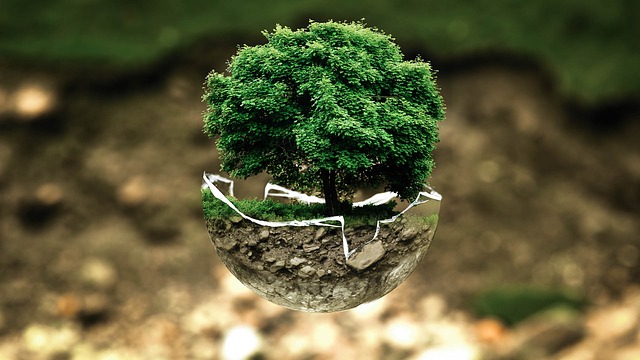The right to a clean, healthy and sustainable environment now globally recognized as a human right
In its session held on 8 October 2021 the Human Rights Council adopted Resolution 48/13, recognizing for the first time that having a clean, healthy and sustainable environment is a human right and called on States around the world to work together, and with other partners, in its implementation. The document, proposed by Costa Rica, the Maldives, Morocco, Slovenia and Switzerland, was passed with 43 votes in favor and 4 abstentions – from Russia, India, China and Japan.
Simultaneously, the Council adopted Resolution 48/14 establishing a new special procedure – a Special Rapporteur on Human Rights and Climate Change, thus strengthening the UN’s focus on the intersection of these two areas.
Bold Action Required
On the occasion of the adoption of the two new landmark instruments, UN High Commissioner for Human Rights, Michelle Bachelet called on Member States to “take bold action to give prompt and real effect to the right to a healthy environment”.
“Having long called for such a step, I am gratified that the decision clearly recognizes environmental degradation and climate change as interconnected human rights crises,” stated Bachelet.
“Bold action is now required to ensure this resolution on the right to a healthy environment serves as a springboard to push for transformative economic, social and environmental policies that will protect people and nature,” she stressed.
The new resolution acknowledges the damage inflicted upon millions of people around the world as result of climate change and environmental degradation, as well as the fact that the most vulnerable groups are the ones that are most intensely affected.
Following the Council’s decisions, the issue will now go to the UN General Assembly for further consideration.
Recognition of the Right to a Healthy Environment Result of Long-Term Efforts
Following the adoption of the resolutions, Bachelet paid tribute to the efforts of numerous civil society organizations, including youth groups, national human rights institutions, indigenous peoples’ organizations, businesses and many others.
Warning about the unprecedented level of violence against environmental human rights defenders, she called on the states to take firm and decisive action to protect and empower them.
“The decision will send a powerful message to communities around the world struggling with climate hardship that they are not alone,” said Costa Rica’s ambassador Catalina Devandas Aguilar, one of the co-sponsors of the resolution.
The new resolution comes just before the UN climate change summit (COP26), set to take place from 31 October to 12 November in Glasgow.
According to the World Health Organization (WHO), 24% of all global deaths, or approximately 13.7 million a year, are linked to environmental factors, i.e. risks such as air pollution and chemical exposure.
Ombudswoman’s Work in the Field of Environmental Protection
In a statement on the occasion of the HRCs 48th session the Global Alliance of National Human Rights Institutions (GANHRI), in the work of which the Office of the Ombudswoman actively participates as a full member, joined states, civil society and UN experts in calling for global recognition of the right to healthy environment as a universal human right.
The initiative was supported by Ombudswoman Šimonović Einwalter as an important step in the protection of the right to life as well as numerous other fundamental human rights. Our institution has been supporting this initiative through the active participation in both GANHRI as well as ENNHRI (the European Network of National Human Rights Institutions). In the latter, our work has been recognized as an example of good practice in in the area of climate change and environmental protection and was featured in the 2020 handbook Human Rights in Practice: Climate Change and Human Rights jointly published by the German Institute for Human Rights and the Center for International Environmental Law (CIEL) as well as in the 2021 ENNHRI paper Climate Change and Human Rights in the European Context.
Currently, our institution is participating in the organization of the Symposium on the topic of the building the HNRIs capacity to tackle climate change emergency set to take place on the side-lines of COP26 on 3-5 November, where we will discuss the human rights impacts of the catastrophic 2014 floods in the Vukovar-Srijem County and the 2017 fire in the city of Split.
In 2020 the Ombudswoman submitted to the Croatian Parliament her Special Report on the Right to a Healthy Life and Climate Change in the Republic of Croatia in the Period 2013-2020. The document provides an evaluation of the level of the implementation of the right to a healthy life as guaranteed by the Constitution of the Republic of Croatia and presents an analysis of the issues related to the protection of air, water and soil, light and noise pollution non-ionizing radiation, sustainable waste management and climate change, demonstrating the interconnections between environmental protection and human rights. It includes a number of recommendations to the competent authorities with the aim of raising the awareness of both the state institutions as well as the general public and advancing the level of protection of both the environment and human health in the Republic of Croatia.


